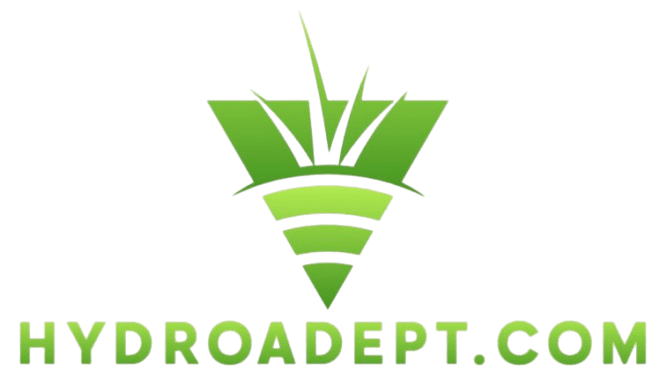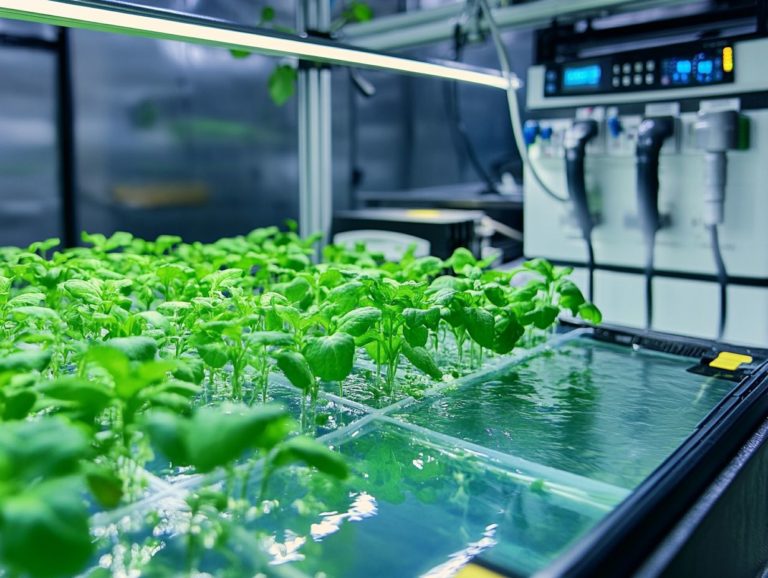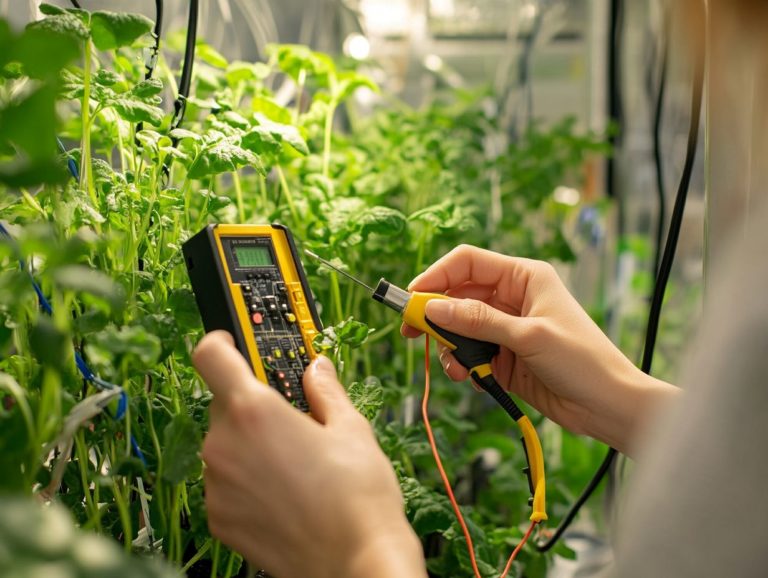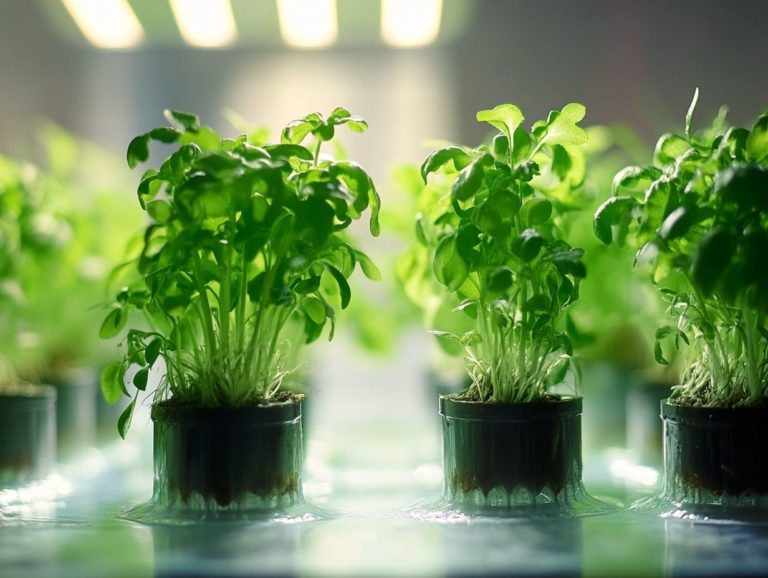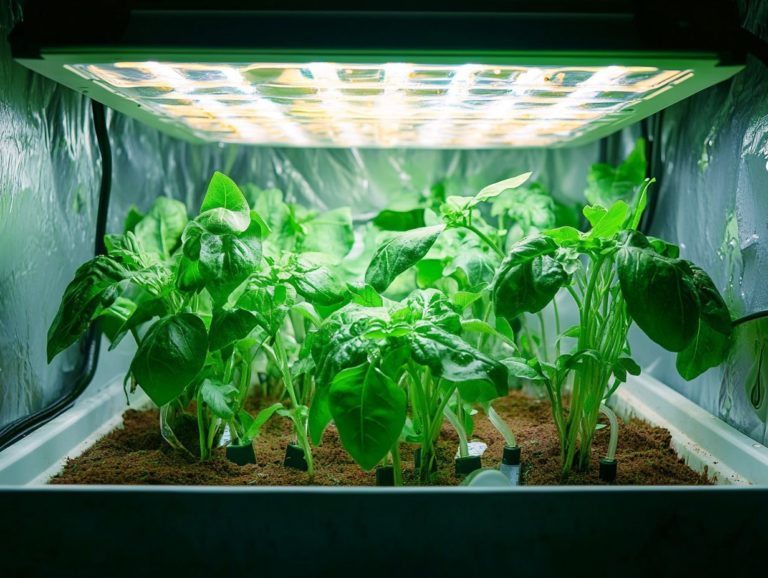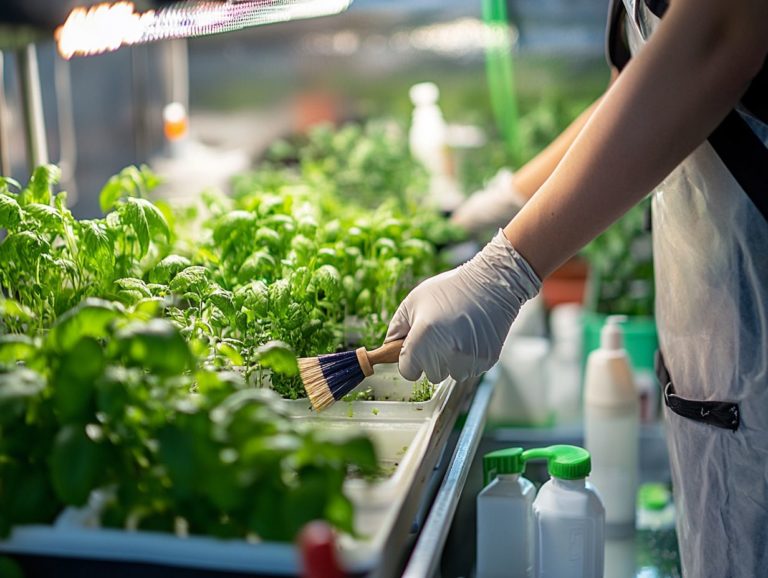Detecting and Fixing Clogged Hydroponic Tubes
Hydroponic systems present a groundbreaking method for cultivating plants without the need for soil. However, they demand meticulous maintenance to achieve peak performance, particularly in maintaining optimal water quality.
One prevalent challenge that can disrupt these systems is clogged tubes. Spotting clogged hydroponic tubes quickly is essential for your garden s success!
This article delves into the essentials of hydroponics and the mechanics of tube systems. It pinpoints the signs and causes of clogs while offering a comprehensive guide for water management and troubleshooting.
You will discover strategies to prevent future clogs and explore alternative solutions like air pumps to ensure your hydroponic garden remains vibrant and thriving. Dive in now to keep your plants thriving!
Contents
- Key Takeaways:
- Understanding Hydroponic Systems
- Signs of Clogged Hydroponic Tubes
- Fixing Clogged Hydroponic Tubes
- Preventing Clogs in Hydroponic Systems
- Alternative Solutions for Clogged Tubes
- Frequently Asked Questions
- How do I know if my hydroponic tubes are clogged?
- What causes clogs in hydroponic tubes?
- How can I prevent clogs in my hydroponic tubes?
- Can clogged hydroponic tubes be fixed?
- What should I do if my hydroponic tubes are still clogged after cleaning?
- Are there any products specifically designed to prevent clogs in hydroponic tubes?
Key Takeaways:
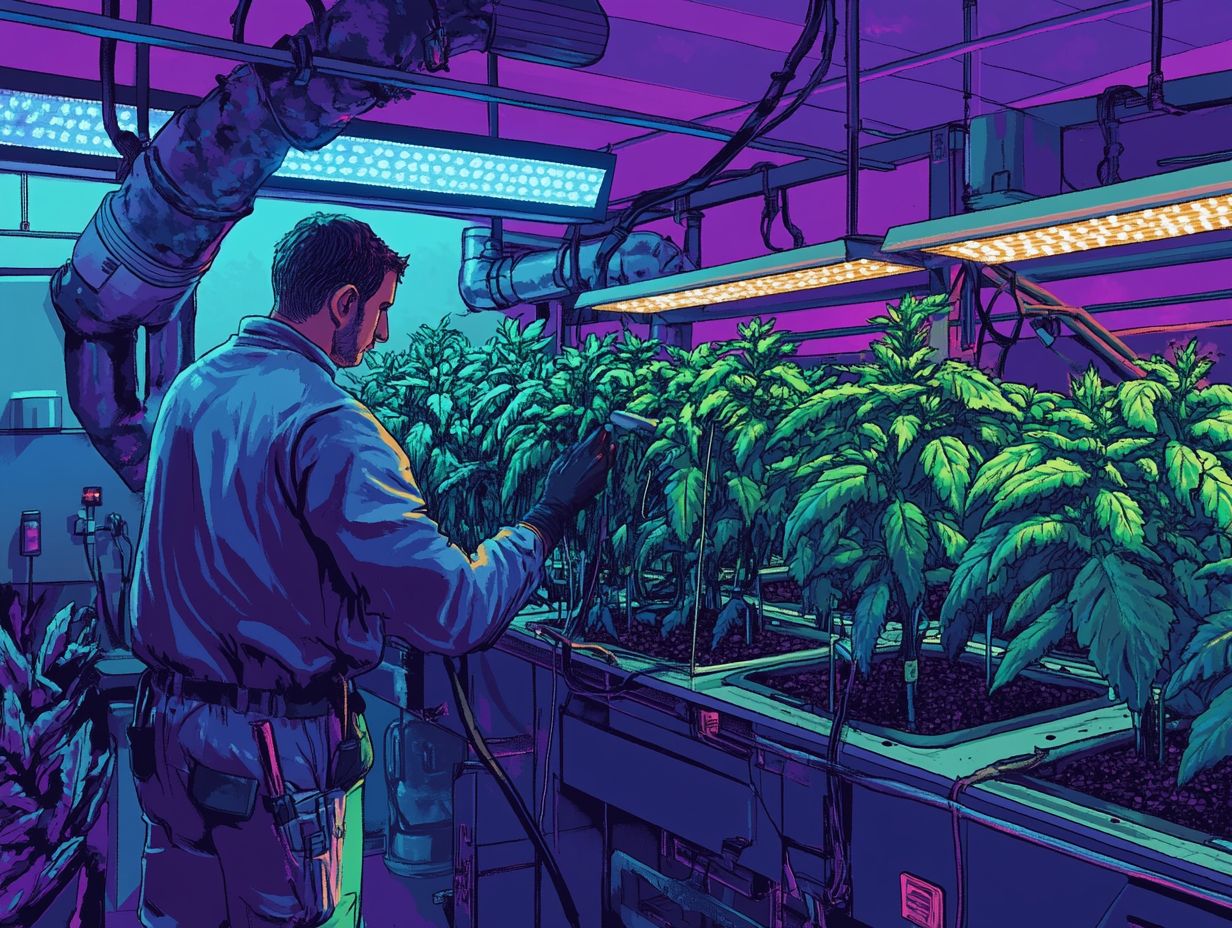
- Hair-like algae growth, sediment buildup, and reduced water flow are common signs of clogged hydroponic tubes.
- Regular cleaning and maintenance, using filters, and proper water recycling can help prevent and fix clogs in hydroponic systems.
- If traditional methods fail, alternative solutions like air pumps, compressed air, or enzyme cleaners can be used to clear clogs in hydroponic tubes.
Understanding Hydroponic Systems
Grasping the intricacies of hydroponic systems is essential for modern gardening enthusiasts or agricultural innovators. This aims to elevate crop production through innovative methods. Hydroponics, a groundbreaking soil-less growing technique, harnesses nutrient solutions and carefully managed growing conditions to foster plant growth and maximize yield.
By employing efficient water conservation strategies, hydroponic farming enables you to produce high-quality crops while significantly reducing resource waste. This positions hydroponics as a vital aspect of sustainable agriculture.
As urban and home gardening continues to gain traction, mastering hydroponic practices will become increasingly relevant for anyone eager to refine their gardening techniques.
Overview of Hydroponics and Tube Systems
Hydroponics is a groundbreaking method for cultivating plants without soil, employing advanced tube systems like the Nutrient Film Technique (NFT) and Deep Water Culture (DWC). NFT circulates a thin layer of nutrient-rich water over the roots, facilitating rapid nutrient uptake while conserving water. DWC, on the other hand, suspends plants in a nutrient solution, delivering outstanding oxygenation through air stones to promote root respiration.
These systems present an exceptional opportunity to enhance plant growth efficiency by providing direct access to nutrient solutions tailored to the unique needs of your crops. The choice of growing media ranging from clay pellets and rock wool to organic media further supports root structure and moisture retention, creating the perfect environment for robust plant development.
Signs of Clogged Hydroponic Tubes
Recognizing the signs of clogged hydroponic tubes is crucial for maintaining the efficiency of your hydroponic systems. Clogs can significantly impact water quality and disrupt the flow of nutrient solutions, ultimately hindering plant growth and diminishing yields.
By staying vigilant for these signs, you can proactively tackle issues like decreased water flow, unusual plant behavior, or nutrient imbalances. Environmental monitoring becomes essential for detecting potential problems early, allowing you to implement corrective measures and safeguard the overall health of your hydroponic garden.
Identifying Symptoms and Causes
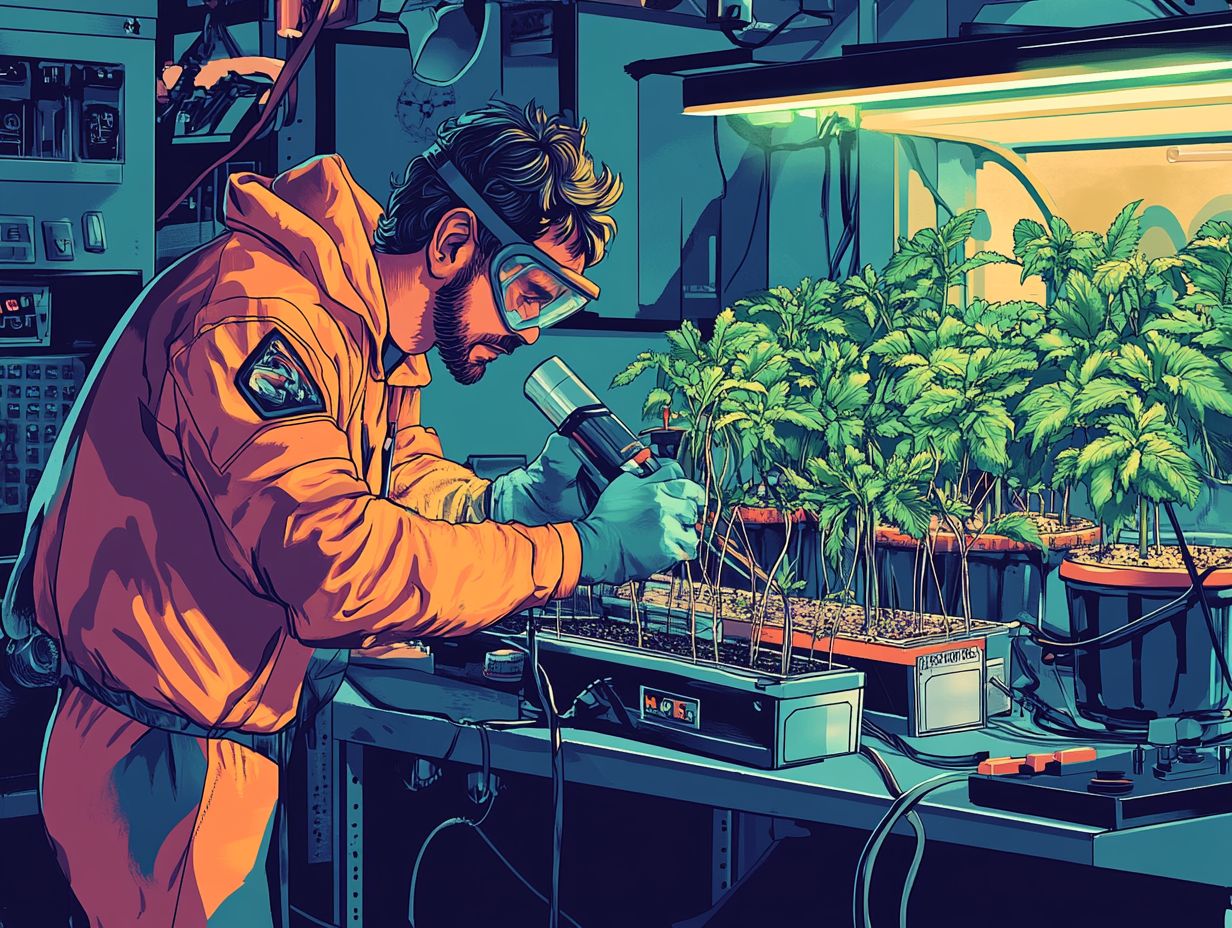
Identifying the symptoms and causes of clogged hydroponic tubes is essential for mastering effective water management and ensuring a thriving hydroponic setup.
Recognizing early warning signs is paramount. Slow water flow can lead to how nutrients reach plants, adversely affecting their growth. If you notice your system running sluggishly, it could signal blockages from residue buildup, algae growth, or even unwelcome pests infiltrating your setup.
Improper maintenance practices, such as neglecting regular cleaning or failing to monitor pH levels, can worsen these issues. Adopting a routine to inspect the integrity of the tubes is crucial. For further guidance, refer to our emergency troubleshooting for hydroponic gardens. These proactive measures help keep your plants flourishing and reduce the risk of more serious complications down the line.
Fixing Clogged Hydroponic Tubes
Fixing clogged hydroponic tubes boosts your system’s efficiency. It keeps nutrients flowing to your plants, ensuring they stay healthy. A well-crafted troubleshooting guide can make this process smoother, allowing you to identify, address, and prevent clogs with ease.
By utilizing automation techniques and advanced water filtering systems, you can maintain superior water quality and nutrient balance. Ultimately, this boosts your crop yield and promotes healthier plants.
Step-by-Step Troubleshooting Guide
A step-by-step troubleshooting guide is essential for you as a hydroponic grower, especially when dealing with the pesky issue of clogged tubes in your system.
- Start by understanding the cause of the blockage. A thorough visual inspection can help you spot any visible obstructions.
- Once you’ve assessed the situation, use effective methods to clear the blockage, such as employing a gentle stream of water or a specialized cleaning solution made for hydroponic systems.
To prevent future clogs, maintaining optimal nutrient levels is key, ensuring your plants receive the support they need. For further guidance, check out our how to troubleshoot hydroponic system failures. Regularly monitoring water flow rates and pH levels is vital for sustaining an efficient water management system.
If these initial steps don t do the trick, you may need to consider dismantling the affected areas for a more detailed cleaning to restore peak performance.
Preventing Clogs in Hydroponic Systems
Act now to prevent clogs in your hydroponic system for thriving plants! Preventing clogs is crucial for maintaining efficiency and ensuring optimal plant growth. It s essential for you, as a grower, to embrace effective maintenance tips and best practices.
By doing so, you create an environment where your plants thrive without the interruptions caused by system blockages.
Maintenance Tips and Best Practices
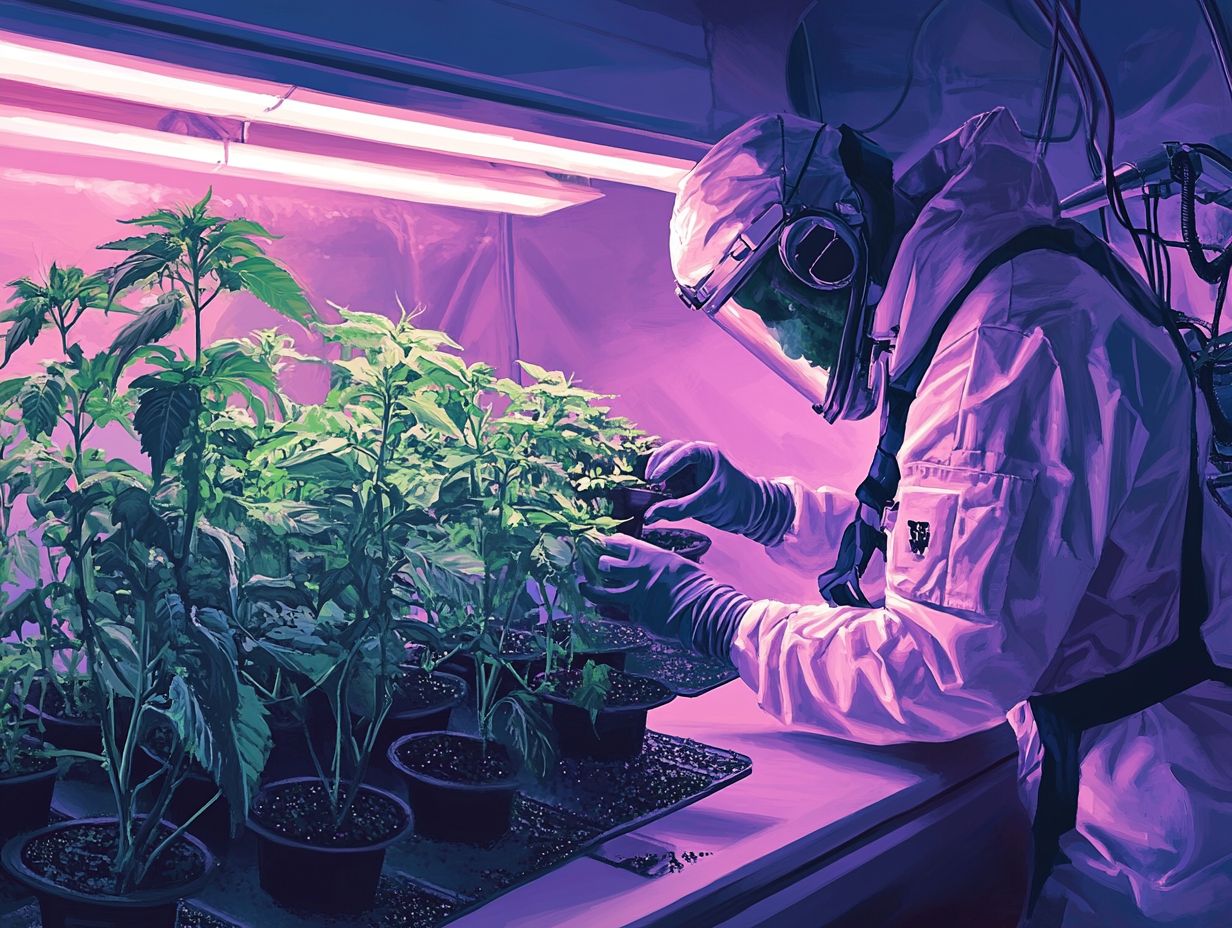
Implementing maintenance tips and best practices is essential for the long-term success of your hydroponic systems. It’s especially important for effective water management and nutrient balance.
Regularly monitoring the pH and electrical conductivity of your water can significantly enhance the performance of these systems. This ensures your plants receive the precise nutrients they need for optimal growth. By incorporating preventive measures, such as periodically cleaning the nutrient reservoir and adjusting water levels, you can avert potential clogs and foster a healthy environment for plant roots.
Neglecting these practices over time may result in imbalances that jeopardize plant health and create ideal conditions for algae growth or pathogen buildup. By keeping a vigilant eye on these parameters, you maintain an ideal nutrient balance, contribute to environmental stability, and ultimately support the lush growth of thriving hydroponic crops.
Alternative Solutions for Clogged Tubes
Explore creative solutions for clogged tubes. This boosts your irrigation techniques and keeps your plants healthy. Delving into alternative solutions for clogged tubes in hydroponic systems can significantly elevate the effectiveness of your irrigation techniques and bolster plant health.
Exploring Other Options for Hydroponic Systems
Exploring alternative hydroponic systems opens the door to innovative solutions that can enhance your water management and streamline your growing processes, particularly through greenhouse systems.
By incorporating options like aeroponics, which uses mist to grow plants without soil, and nutrient film technique (NFT), you can significantly reduce the risk of clogs that often plague conventional setups. These advanced methods utilize fine mist or thin films of nutrient solutions, ensuring your plants receive optimal moisture without the buildup issues commonly seen in traditional systems.
Imagine the ease you ll have with automation! Sensors and timers can take your plant care to the next level, minimizing human error in nutrient distribution and plant care. Effective pest control measures can be integrated into these hydroponic systems, creating a healthy growing environment while preventing infestations that could disrupt your operations.
Frequently Asked Questions
How do I know if my hydroponic tubes are clogged?
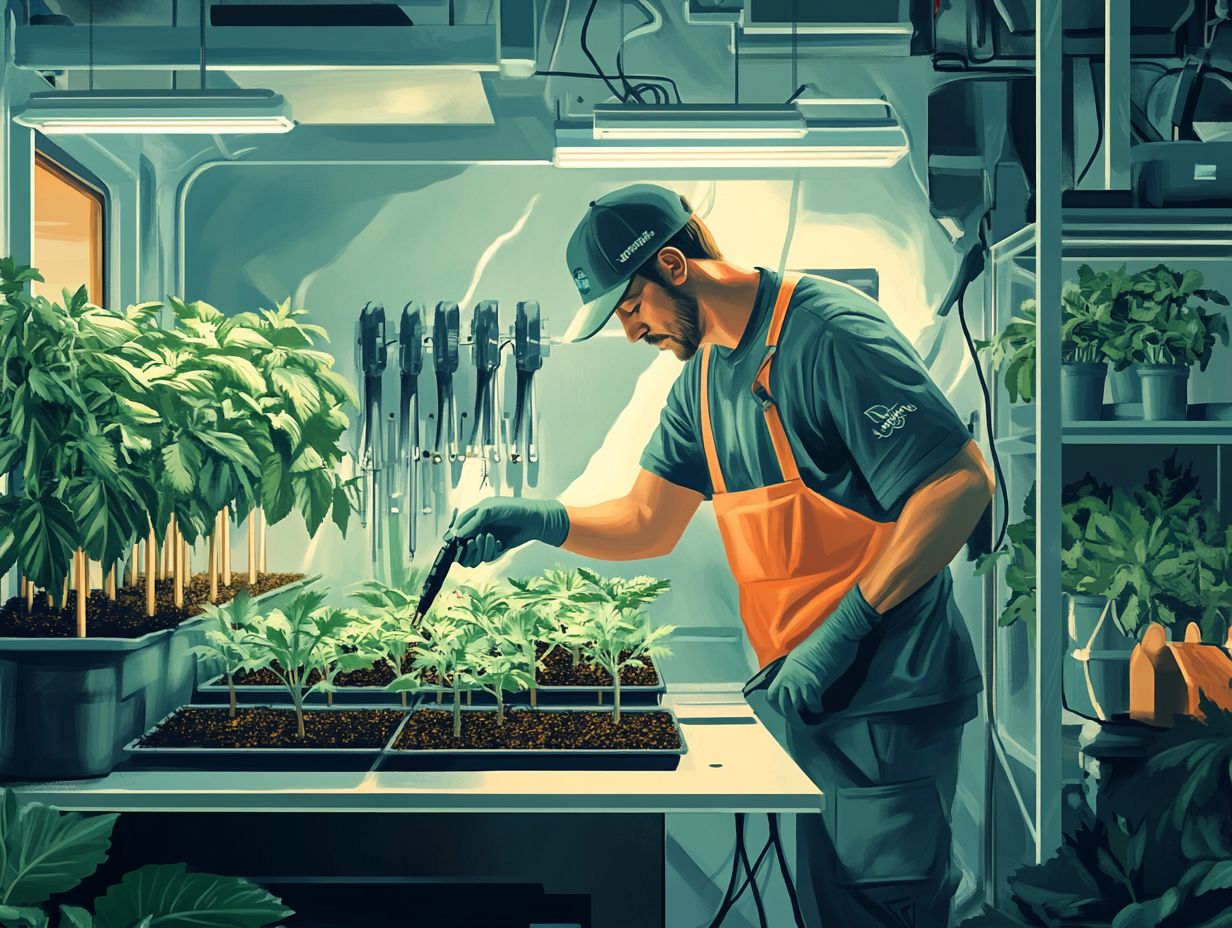
There are a few signs that may indicate clogged hydroponic tubes, including reduced water flow, decreased plant growth, and visible debris or algae buildup in the tubes.
What causes clogs in hydroponic tubes?
Clogs in hydroponic tubes can be caused by a variety of factors, such as nutrient buildup, plant roots growing too large, or debris entering the system. Poor maintenance and infrequent flushing can also contribute to clogs, especially in systems utilizing deep water culture or nutrient film technique.
How can I prevent clogs in my hydroponic tubes?
Regular maintenance and flushing of your hydroponic system can help prevent clogs. Using a filter or screen at the inlet of the tubes can catch any debris before it enters the system, improving water quality and ensuring effective nutrient delivery to the plants.
Can clogged hydroponic tubes be fixed?
Yes, clogged hydroponic tubes can usually be fixed with some simple maintenance. Flushing the system with a cleaning solution or using a pipe cleaner to remove debris can help clear the clog and restore water flow, ensuring optimal oxygen levels for the root systems of the growing plants.
What should I do if my hydroponic tubes are still clogged after cleaning?
If cleaning and maintenance do not clear the clog, it may be necessary to replace the affected tubes, especially in hydroponic setups relying on automation techniques for monitoring environmental conditions. Address clogs promptly to protect your plants and ensure a thriving system!
Are there any products specifically designed to prevent clogs in hydroponic tubes?
Yes, there are products available on the market, such as enzyme cleaners, that can help prevent clogs in hydroponic tubes, enhancing the overall health of the hydroponic gardens and promoting crop yield. These products work by breaking down organic debris and preventing buildup in the tubes.
